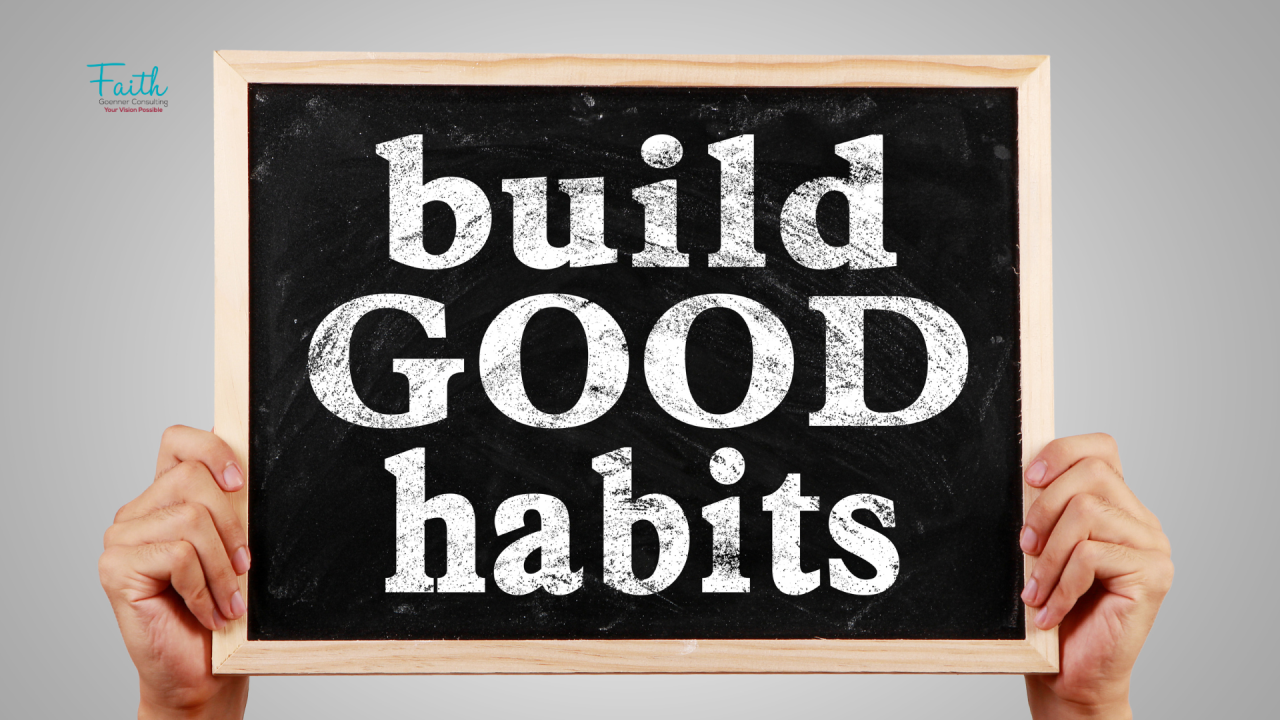1.小さな日常習慣が未来を変える
子どもがまだ幼い頃、私たちが毎日当たり前のようにやっていること――たとえば、起床後に部屋を片付ける、食事の後に食器を下げる、寝る前に歯を磨く――こうした一見何気ない「習慣」が、実は子どもの未来を大きく左右するかもしれないとしたら、どうでしょうか。
幼い子どもにとって、日々の生活習慣は「それをやるのが普通」と無意識に感じ取れるかどうかがカギになります。つまり、“いい習慣”を当たり前にしておくことで、成長してから自然に「行動に移せる力」が身につくのです。これは学習や人間関係においても役立つだけでなく、将来の自己管理能力やストレス対処力を高めるベースにもつながるでしょう。
2.早期のポジティブ習慣がもたらすメリット
(1) 自信の種を育てる
小さな達成感を積み重ねることで、「自分にもできるんだ」という実感が子どもの心に生まれます。たとえば、「毎朝、起きたら布団をたたむ」「おもちゃは遊んだあとすぐに片付ける」というような小さな約束を守り続けると、それ自体が大きな成功体験となるのです。
こうしたポジティブな習慣を身につけた子どもは、のちのち学習や部活動といった新たな挑戦にも前向きに取り組みやすくなります。「やればできる」という自己肯定感は、幼少期からの習慣づくりが大きく影響すると言っても過言ではありません。
(2) ストレス耐性や自己管理能力の向上
決まったルーティンや習慣があると、子どもは環境の変化やプレッシャーに対して落ち着いて行動しやすくなります。たとえば朝ごはんをしっかり食べてから家を出る習慣がある子は、学校での集中力やエネルギーを維持しやすいでしょう。
また、日常的にコツコツと続ける経験を通して「少しずつ前に進む大切さ」を体感できるため、目の前にある困難に対しても「すぐには結果が出なくても、まずは続けてみよう」というマインドを育めます。
3.親ができるサポートの具体例
(1) 親自身の習慣を見直す
子どもは常に親の行動を観察しているため、まずは親自身が「ポジティブな習慣」を持っているかを振り返ってみましょう。夜更かしが多い、物をすぐに散らかしてしまう、朝食を抜きがち……もし親がそうした生活をしていると、子どもも「それが普通」と受け取ってしまう可能性があります。
逆に、夜はある程度決まった時間に寝て朝は早めに起きる、使ったものは元の場所に戻す、家族で簡単な掃除を日課にする――こうした小さな行動を親が率先して行うだけでも、子どもは自然に「それが当たり前」と感じるようになります。
(2) 明確なルールと小さなステップを設定する
「毎日ちゃんと片付けようね」「忘れ物をしないようにね」といった漠然とした声かけだけでは、子どもは何をどうしていいのか分からずに終わってしまいがちです。そこで、具体的で達成しやすいルールを設定し、小さな成功体験につなげる工夫をしましょう。
たとえば、「夕食のあとは自分のお皿とコップをキッチンに持っていく」「朝起きたらまず窓を開ける」といった1ステップの行動から始めてみるのがポイント。子どもができるようになったら、徐々にステップアップしていくと、無理なく習慣を定着させやすくなります。
(3) ポジティブなフィードバックを忘れない
子どもが習慣づくりを頑張っているとき、親からの承認や褒め言葉は大きなモチベーションとなります。「さっそくお皿を運んでくれて助かったよ」「昨日より早くお片付けができていたね」といった具体的なフィードバックがあると、子どもは「見てもらえている」「認めてもらえている」と感じ、続ける意欲が高まります。
一方、注意や指摘が必要な場合でも、最初に頑張りを認めてから「ここをこうするともっと良くなるよ」と声をかけるなど、できるだけ前向きに伝える工夫を心掛けましょう。
4.習慣化を難しく感じるときの対処法
(1) 無理に完璧を目指さない
子どもがまだ小さいうちから、完璧にすべての習慣を身につけさせようとすると、親も子どもも疲弊してしまいます。まずは一つ、もしくは二つの行動目標に絞り、それを習慣化できたら次に進む――という段階的なアプローチが大切です。
たとえば「毎朝、起きたらパジャマをたたむ」「夜寝る前に歯を磨く」の2つをしっかりと定着させるだけでも、子どもにとっては大きな成長です。焦らず、子どものペースに合わせてあげましょう。
(2) 遊びやチャレンジ要素を取り入れる
ただ「やらなきゃいけないこと」として押し付けられると、子どもは退屈したり反発したりすることがあります。そこで、ゲーム感覚で取り組めるよう工夫を凝らすと楽しみながら続けられるかもしれません。
たとえば、片付けタイムにタイマーを使って「何分以内におもちゃを全部片付けられるか試してみよう!」と挑戦してみたり、週間表を作ってシールを貼れるようにして達成感を可視化したりする方法もあります。
(3) 親子で共有する時間を確保する
習慣づくりにおいては、親子間のコミュニケーションが欠かせません。どんな習慣を定着させたいのか、その理由は何か、どこがうまくいっていてどこが難しいのか――子どもと一緒に話し合い、時にはルールを見直す時間を設けましょう。
家族全員が同じ目標に向かって取り組む環境を作ると、子どもは「これはみんなが大事にしていることなんだ」と感じやすくなり、モチベーションが高まりやすくなります。
5.将来に生きるポジティブ習慣の広がり
幼少期に築かれた「当たり前の習慣」は、やがて学業や社会生活のさまざまなシーンで威力を発揮します。たとえば、整理整頓の習慣は勉強の際に必要なものをスムーズに取り出す力へとつながり、健康的な生活リズムを保つ意識は仕事や人間関係においても安定感をもたらすでしょう。
また、習慣を通じて得られる小さな成功体験や達成感は、自己肯定感を育て、自ら新たな目標を立てて行動する原動力にもなります。そうして子どもが自分の力で人生を切り拓いていけるベースを、私たちは幼いうちから一緒に築き上げることができるのです。
まとめ
新しい習慣を身につけるためには、根気と継続が必要です。特に幼い子どもにとっては、毎日同じことをするのは飽きてしまったり、面倒くさくなったりする瞬間もあるでしょう。そんなときこそ、親が一緒に楽しみながらサポートし、「できた!」という感覚を共有することが大切です。
早期にポジティブな習慣を育むことは、単に「生活がスムーズになる」というメリットだけでなく、子どもが将来自分の人生を切り拓いていくための土台を築く意味合いも持っています。短期的なゴールではなく、長い目で見て一緒に成長していくイメージを大切にしながら、小さなステップを積み重ねていきましょう。
子どもの可能性は無限大。習慣の力を借りて、その可能性を最大限に引き出すお手伝いを、親として楽しみながら進めていきませんか?
Fostering Positive Habits Early: A Parental Guide to Boost Growth
1. Small Daily Habits Can Shape the Future
Think about the everyday routines we take for granted—making the bed after waking up, clearing dishes after meals, brushing teeth before bedtime. These simple “habits” could significantly influence your child’s future.
For a young child, recognizing these daily habits as just a “normal part of life” is crucial. By making “good habits” a given, they naturally learn to carry them out without much thought. Such habits benefit them not only in academics and social interactions but also lay the foundation for stronger self-management and coping skills down the line.
2. Advantages of Establishing Positive Habits Early
(1) Building Self-Confidence
Repeated small achievements instill a sense of “I can do this” in a child’s mind. Tasks like folding the blankets each morning or immediately putting away toys become powerful success experiences.
Children who develop these positive habits from a young age are more inclined to tackle new challenges like studying or joining clubs. Their “I can do it if I try” attitude often stems directly from consistent positive habits formed early on.
(2) Enhancing Stress Resistance and Self-Management
A predictable routine helps children remain calm and focused amid changes or pressures. For example, a child who’s used to having breakfast before leaving home is better equipped to stay energized and attentive at school.
Moreover, through daily repetitive efforts, children experience the value of “incremental progress,” learning that “even if results aren’t immediate, let’s keep trying.”
3. Practical Ways Parents Can Help
(1) Reevaluate Your Own Habits
Children are constantly observing their parents, so check if you maintain “positive habits” yourself. If you often stay up late, leave messes around, or skip breakfast, your child may absorb those practices as normal.
Conversely, sticking to a reasonable bedtime, returning items to their proper places, or engaging the family in a brief cleaning routine can inspire them to see these behaviors as natural.
(2) Set Clear Rules and Incremental Steps
Vague reminders like “clean up properly” or “don’t forget your stuff” often leave kids unsure about what to do. Instead, try establishing achievable rules to pave the way for small successes.
For instance, start with one-step tasks such as “After dinner, bring your plate and cup to the kitchen,” or “Open the window as soon as you wake up.” Once a child masters those steps, gradually introduce more, making it easier to sustain new habits without overwhelming them.
(3) Provide Positive Feedback
Praise and acknowledgment from parents serve as major motivators for children. Comments like “Thanks for taking your plate to the kitchen so quickly!” or “You cleaned up even faster than yesterday” let them know their efforts are noticed and appreciated.
Even if corrective feedback is needed, start by highlighting what they did well before suggesting improvements. This keeps the interaction constructive.
4. Overcoming Challenges in Forming Habits
(1) Don’t Expect Perfection Too Soon
Expecting young children to master every habit flawlessly right away can be exhausting for both parent and child. It’s often more effective to focus on one or two target behaviors and add more after those become routine.
For instance, consistently having them fold pajamas after waking up or brush their teeth before bedtime can be huge milestones. Proceed at your child’s pace without rushing.
(2) Incorporate Play and Challenges
Simply ordering kids to “do this because you have to” can bore them or spark defiance. Instead, gamify tasks to maintain their interest.
For example, set a timer during cleanup and encourage them to beat the clock, or use a sticker chart for completed tasks to visually show progress and trigger a sense of achievement.
(3) Share Time and Goals as a Family
Parent-child communication is key to forming habits. Discuss which habits are important, why they matter, what’s working, and what isn’t. Periodically review and adjust your rules if needed.
When everyone in the family works toward the same goal, children sense that “this is important to all of us,” heightening their motivation.
5. Long-Term Impact of Early Positive Habits
The “default habits” established in childhood can greatly influence various aspects of life as children grow. Neatness and organization help them find school materials with ease, while maintaining a balanced routine fosters stability in work and personal relationships.
Additionally, the small victories and sense of accomplishment that come with daily habits build self-esteem, encouraging kids to set and pursue new goals independently. By nurturing strong habits early on, we equip children with a solid foundation for navigating their future.
Conclusion
Cultivating new habits requires patience and persistence. Young children especially may get bored or find routines tedious. In these moments, parents can make a big difference by participating actively and celebrating achievements together.
Establishing positive habits early on benefits more than smooth daily routines—it helps lay the groundwork for your child to shape their future. Keep a long-term perspective, build up step by step, and relish the growth you’re fostering together.
Children’s potential is boundless, and harnessing the power of good habits can unlock that potential further. As parents, let’s embrace the journey of creating positive habits with joy and determination.




コメント